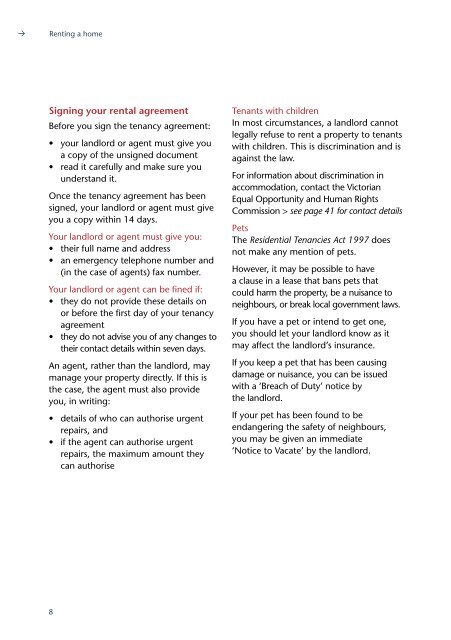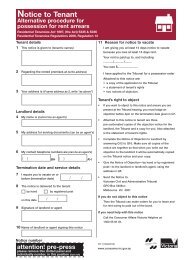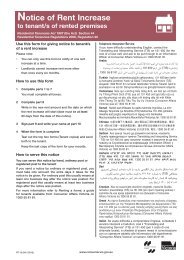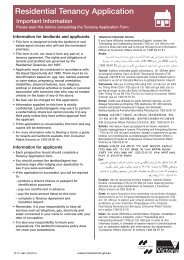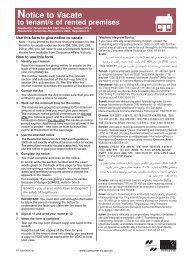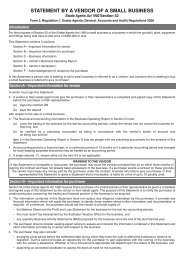Renting a home: a guide for tenants - Consumer Affairs Victoria
Renting a home: a guide for tenants - Consumer Affairs Victoria
Renting a home: a guide for tenants - Consumer Affairs Victoria
Create successful ePaper yourself
Turn your PDF publications into a flip-book with our unique Google optimized e-Paper software.
<strong>Renting</strong> a <strong>home</strong><br />
Signing your rental agreement<br />
Be<strong>for</strong>e you sign the tenancy agreement:<br />
• your landlord or agent must give you<br />
a copy of the unsigned document<br />
• read it carefully and make sure you<br />
understand it.<br />
Once the tenancy agreement has been<br />
signed, your landlord or agent must give<br />
you a copy within 14 days.<br />
Your landlord or agent must give you:<br />
• their full name and address<br />
• an emergency telephone number and<br />
(in the case of agents) fax number.<br />
Your landlord or agent can be fined if:<br />
• they do not provide these details on<br />
or be<strong>for</strong>e the first day of your tenancy<br />
agreement<br />
• they do not advise you of any changes to<br />
their contact details within seven days.<br />
An agent, rather than the landlord, may<br />
manage your property directly. If this is<br />
the case, the agent must also provide<br />
you, in writing:<br />
• details of who can authorise urgent<br />
repairs, and<br />
• if the agent can authorise urgent<br />
repairs, the maximum amount they<br />
can authorise<br />
8<br />
Tenants with children<br />
In most circumstances, a landlord cannot<br />
legally refuse to rent a property to <strong>tenants</strong><br />
with children. This is discrimination and is<br />
against the law.<br />
For in<strong>for</strong>mation about discrimination in<br />
accommodation, contact the <strong>Victoria</strong>n<br />
Equal Opportunity and Human Rights<br />
Commission > see page 41 <strong>for</strong> contact details<br />
Pets<br />
The Residential Tenancies Act 1997 does<br />
not make any mention of pets.<br />
However, it may be possible to have<br />
a clause in a lease that bans pets that<br />
could harm the property, be a nuisance to<br />
neighbours, or break local government laws.<br />
If you have a pet or intend to get one,<br />
you should let your landlord know as it<br />
may affect the landlord’s insurance.<br />
If you keep a pet that has been causing<br />
damage or nuisance, you can be issued<br />
with a ‘Breach of Duty’ notice by<br />
the landlord.<br />
If your pet has been found to be<br />
endangering the safety of neighbours,<br />
you may be given an immediate<br />
‘Notice to Vacate’ by the landlord.


